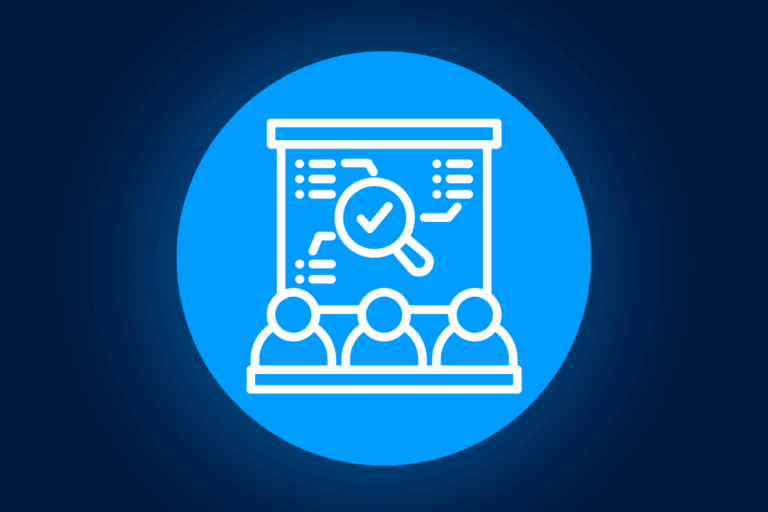Although more than 85% of companies have compliance systems in place, nearly 60% remain only partially up to date with their obligations (source: study on compliance and anti-corruption in companies, Association Française des Juristes d’Entreprise (AFJE) and Ethicorp.com, 2020).
In terms of staying aligned with evolving compliance regulations, many organizations struggle to keep pace. Corporate security and compliance are still underdeveloped and often misunderstood. Yet, they play a crucial role in business operations!
This article by DiliTrust explores why compliance is essential and how companies can optimize their strategies.
Definition Compliance
Compliance refers to all the processes involved in ensuring that a company complies with standards designed to protect data in all its forms. This data may be that of people inside the company, or external, processed by yourself or by subcontractors.
The Compliance Officer: A Key Player
Every company must appoint a compliance officer to oversee a number of aspects. These include the proper implementation of ethical or CSR (Corporate Social Responsibility) codes, the fight against fraud, and so on. The compliance officer must ensure that employees apply the correct internal processes.
Core Responsibilities
This person plays a crucial role in establishing and overseeing compliance procedures. Their main duties include:
Primary Duties
Duties include :
- Ensure the company’s compliance with applicable laws and regulations.
- Provide in-house training on compliance and corruption risks.
- Oversee internal and external audits to ensure compliance with standards and best practices.
Areas of Intervention
The compliance officer is involved in a number of areas, such as :
- Data protection and compliance with the RGPD.
- The fight against fraud and money laundering.
- Implementation of compliance and internal control policies.
- Monitoring relations with regulatory authorities.
Examples of compliance within a company
Security and ISO/IEC 27001:2013 certification
From the very beginning of DiliTrust’s history, security has been a top priority.
Each new employee starting out on the DiliTrust adventure receives a list of security instructions on arrival, which they undertake to respect by signing the IS charter.
In this way, the DiliTrust team was able to determine the company’s assets, identify the parameters to be certified and comply with current regulations in order to identify and meet applicable legal requirements.
RGPD, a clear example of compliance
The RGPD (General Data Protection Regulation), applicable since May 25, 2018, is a law that aims to protect people’s data and this, whether it allows them to be identified directly (first name, surname…) or indirectly (telephone number, identifier…).
This means that all organizations or companies involved in data collection are subject to this law, regardless of their sector of activity or size. The aim is manifold
– Strengthening people’s rights
– Making organizations that collect and process data accountable
– Get these organizations to cooperate with each other to ensure that information is tracked securely.
ISO/IEC 27701:2019
This certification testifies to a company’s customers and partners that the company has put in place the most optimal means of protecting their data.
It requires companies like DiliTrust to monitor this information as closely as possible. How do we do this? By recording every piece of information and, above all, every request for consultation or deletion by our organization or a subcontractor.
In the event of a request for deletion of personal data, it is important to register the request, notify the subcontractor and inform the customer. All these procedures ensure maximum control and monitoring of personal data protection.
Regulatory bodies and their role in compliance
Regulatory bodies play a central role in establishing a normative framework. These must guarantee data protection and compliance with legal obligations. These bodies supervise and ensure the application of rules and regulations. They also ensure that companies comply with a set of processes defined by national and international bodies.
The main regulatory institutions
Several organizations are involved in maintaining this order, including :
- The International Organization for Standardization (ISO) – Develops global standards, including ISO 27001 and ISO 27701, to ensure corporate security and compliance.
- The Financial Action Task Force (FATF) – Establishes international standards to combat money laundering and terrorism financing.
- The Securities and Exchange Commission (SEC) – Regulates financial markets in the United States to ensure transparency and investor protection.
- The European Data Protection Board (EDPB) – Ensures GDPR compliance across the European Union and provides guidance on data protection.
Overcoming Today’s Compliance Challenges
Keeping Up with Regulatory Changes
Businesses must continuously adapt to evolving laws and regulations. This requires constant monitoring and regular updates to internal policies and procedures. Companies that act early and stay ahead of regulatory shifts are better positioned to maintain continuity and deliver reliable services.
Educating Employees
Raising awareness and educating employees about compliance is critical. Without an informed workforce, achieving full compliance is nearly impossible. Employees must understand how they must comply with internal standards and external laws, including those related to health and safety, data privacy, and anti-corruption.
Leveraging Technology
Artificial intelligence and automation play an increasing role in compliance. These tools help companies analyze risks efficiently, share insights across departments, and detect potential compliance breaches in real-time .
Conclusion
This is not just a legal necessity—it is a fundamental component of ethical and responsible business practices. By ensuring adherence to industry standards and legal norms, companies can safeguard their reputation, avoid financial penalties, and enhance trust among clients and partners.
The importance of compliance cannot be overstated—it’s central to maintaining operational integrity and avoiding costly missteps. However, without a robust compliance management system and a clear strategy to follow, meeting ongoing compliance requirements becomes a challenge. To stay ahead, companies must learn from past gaps, see compliance as a strategic enabler, and embed it deeply into their business practices.
In parallel, strengthening risk management, reinforcing corporate governance, and prioritizing data privacy and data security are equally essential. A unified approach can help organizations create a more resilient and trustworthy operating environment, reducing exposure while building long-term value.
Through certifications like ISO/IEC 27001:2013 and ISO/IEC 27701:2019, along with strong internal compliance policies and procedures, businesses can demonstrate their commitment to ethical and secure operations.
Prioritizing compliance today ensures a sustainable and legally sound future for any organization.


